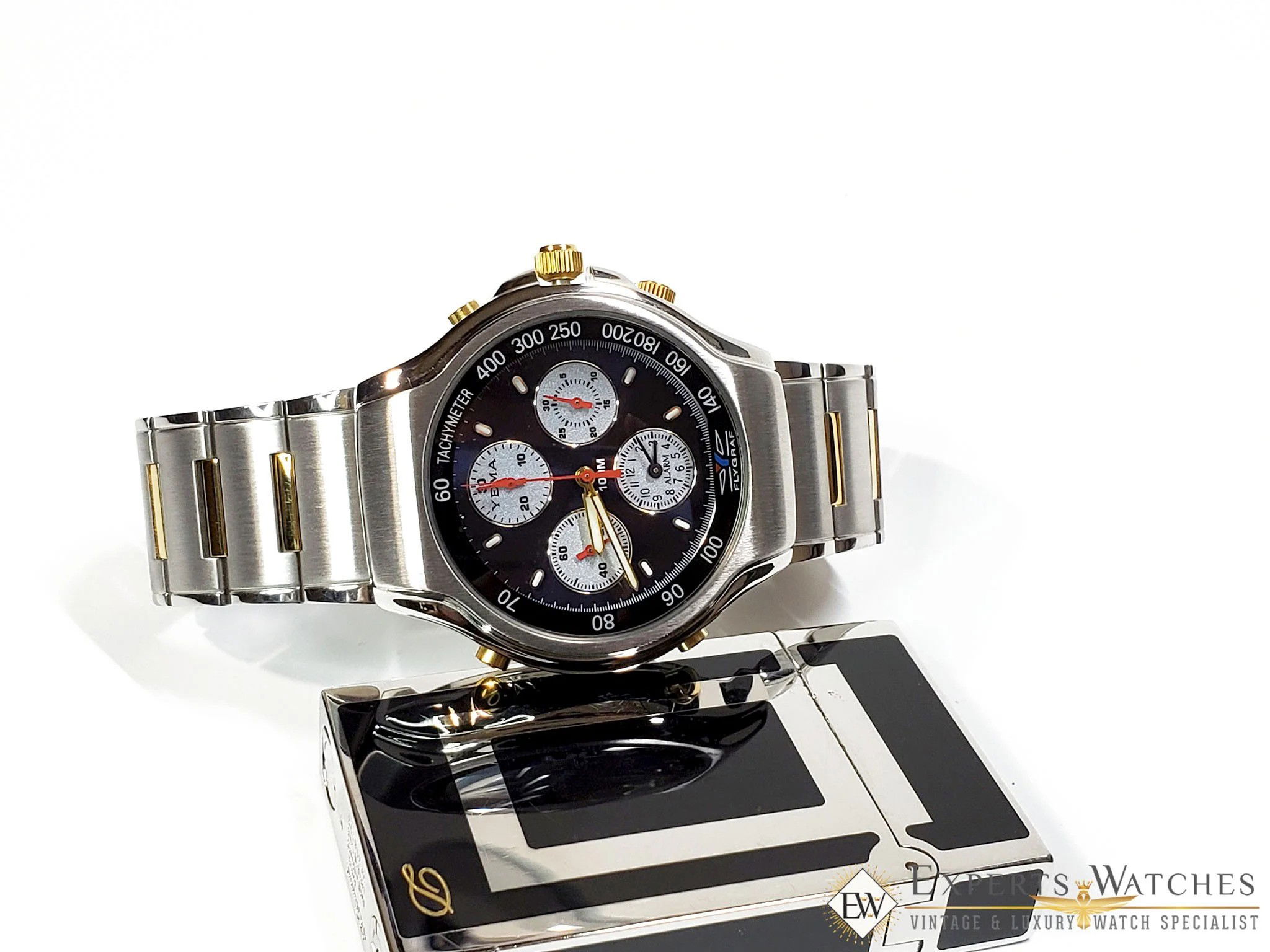Introduction to Quartz Technology: A Game-Changer in Watchmaking
Quartz technology revolutionized the watchmaking industry, offering unprecedented accuracy, affordability, and reliability. Before its introduction, mechanical watches dominated the market, known for their intricate craftsmanship and heritage. However, quartz technology, with its precise timekeeping capabilities, transformed the way we measure time. In this article, presented by ExpertsWatches, we'll explore the fundamentals of quartz technology and its profound impact on the world of horology.
The Basics of Quartz Technology
At the heart of every quartz watch is a tiny quartz crystal, typically made from a slice of silicon dioxide. Quartz crystals have unique properties that make them ideal for timekeeping. When subjected to an electrical current, they vibrate at a precise frequency—usually 32,768 times per second. This consistent vibration is the key to the accuracy of quartz watch movements that changed the world.The vibrations of the quartz crystal are measured by a circuit, which converts them into a regular electric pulse. This pulse drives a small motor, which moves the watch's hands at a constant rate, ensuring accurate timekeeping. Because the frequency of the quartz crystal is so stable, quartz watches are incredibly precise, often deviating by only a few seconds per month.
The Birth of Quartz Watches
The introduction of quartz technology to the watch industry can be traced back to 1969 when Seiko, a Japanese company, unveiled the world's first quartz wristwatch, the Seiko Astron. This watch marked a significant departure from traditional mechanical timepieces, offering a level of accuracy that was previously unattainable. The Seiko Astron demonstrated the potential of quartz technology, sparking a revolution in watchmaking.The success of the Seiko Astron led to the rapid adoption of quartz technology by watchmakers around the world. Quartz watches quickly gained popularity due to their accuracy, durability, and lower production costs. Unlike mechanical watches, which required skilled artisans to assemble intricate movements, quartz watches could be mass-produced with greater efficiency, making high-quality timepieces accessible to a wider audience. ExpertsWatches often highlights this period as a turning point in the history of watchmaking.
I Found my Favourite Watch Strap From One of the trusted Website : https://expertswatches.com
Advantages of Quartz Watches
Quartz watches offer several advantages over their mechanical counterparts. First and foremost, they are far more accurate. The regular oscillation of the quartz crystal ensures that quartz watches maintain precise time, with minimal deviation. This makes them ideal for everyday use, where reliability is essential.In addition to their accuracy, quartz watches are generally more affordable than mechanical watches. The simpler movement and the ability to mass-produce quartz watches have led to lower manufacturing costs, which are passed on to consumers. This affordability has made quartz watches a popular choice for those seeking a reliable timepiece without breaking the bank.Quartz watches are also more durable and require less maintenance than mechanical watches. Without the complex gears and springs found in mechanical movements, quartz watches are less prone to wear and tear. They typically require only a battery replacement every few years, making them a low-maintenance option for timekeeping.

The Impact on the Watchmaking Industry
The introduction of quartz technology had a profound impact on the watchmaking industry, particularly during the 1970s and 1980s. This period, often referred to as the "Quartz Revolution" or "Quartz Crisis," saw a significant shift in the market. Traditional mechanical watchmakers, particularly those in Switzerland, faced stiff competition from the more affordable and accurate quartz watches being produced in Japan and other countries.Many Swiss watchmakers struggled to adapt to the new reality, with some going out of business or being forced to merge with other companies. However, the industry eventually found a way to coexist with quartz technology by focusing on the artistry and craftsmanship of mechanical watches, positioning them as luxury items rather than mere tools for timekeeping. ExpertsWatches frequently discusses this era, emphasizing the resilience of the Swiss watch industry and its ability to innovate in the face of change.
The Evolution of Quartz Technology
Quartz technology has continued to evolve since its introduction, leading to various innovations in watchmaking. Solar-powered quartz watches, for example, use light to recharge the watch's battery, offering an eco-friendly alternative to traditional battery-powered models. Radio-controlled quartz watches, which synchronize with atomic clocks, provide even greater accuracy, with time deviations measured in fractions of a second.These advancements have ensured that quartz technology remains relevant in the modern watch industry. While mechanical watches are celebrated for their craftsmanship and heritage, quartz watches continue to be prized for their precision and practicality.
Conclusion
Quartz technology has had an indelible impact on the world of watchmaking, offering a level of accuracy and affordability that was previously unimaginable. Its introduction marked a new era in horology, changing the way timepieces are produced and consumed. At ExpertsWatches, we recognize the importance of quartz technology in shaping the modern watch industry, and we celebrate its contributions to the art and science of timekeeping.
